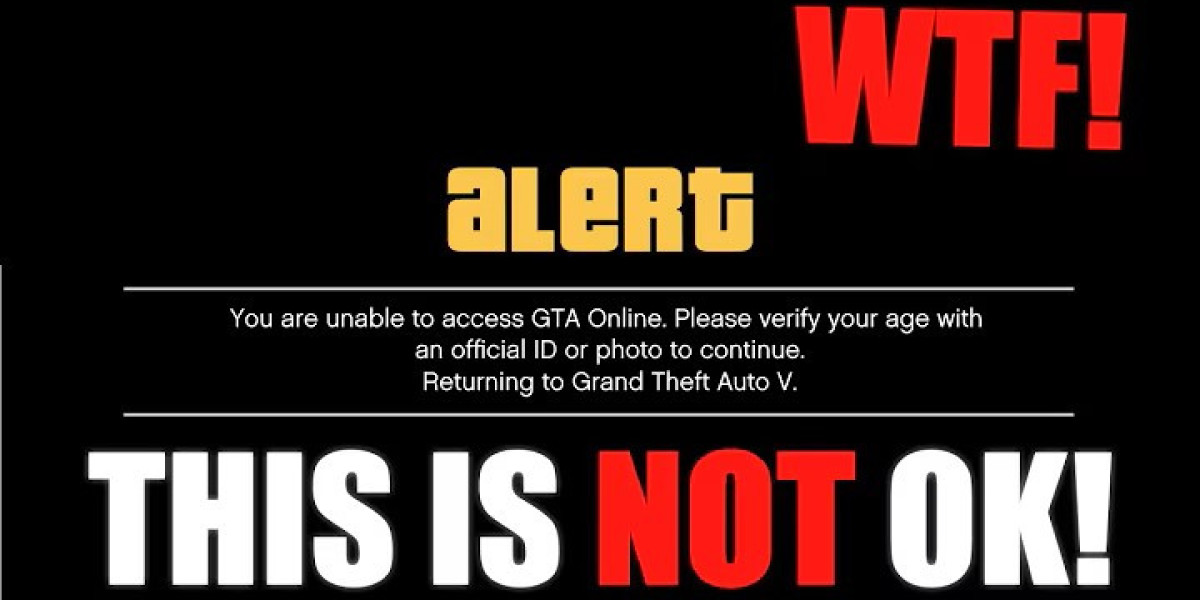The internet is undergoing a dramatic shift—and for gamers, especially in the UK, the changes are beginning to hit close to home. With the introduction of the UK Online Safety Act, a new era of strict age verification laws is unfolding. While the law was initially framed as a way to protect children from adult content, it’s quickly evolving into something far more intrusive, affecting platforms and games that have nothing to do with explicit material—including Spotify, YouTube, Xbox, and yes, GTA Online.
What Is the UK Online Safety Act?
Passed in 2023 and enforced more strictly starting mid-2025, the Online Safety Act requires users in the UK to verify their age before accessing content or features considered “adult.” But it’s not as simple as clicking “Yes, I’m over 18.” Users must now submit a selfie or upload a government-issued ID to prove their age. And if they don’t comply? Their access may be limited—or their accounts deleted altogether.
This law isn’t just targeting adult sites. Instead, it's being applied broadly across entertainment platforms:
- Spotify now requires ID for some “adult features.” Refusal may result in account deletion.
- YouTube will soon use AI to estimate user age based on viewing habits. If the algorithm wrongly categorizes you as underage, you must upload your ID or selfie to restore full access.
- Xbox will begin mandatory age verification in early 2026 for users in the UK. Without it, basic features like voice chat, text messaging, and game invites will be restricted.
And now, signs indicate this could soon apply to GTA Online and GTA V.
GTA Online Is Next
Notorious Rockstar insider Tez2 uncovered code and UI strings suggesting that age verification is being implemented in GTA Online, at least in certain regions. Strings like:
“Verify your age to access Grand Theft Auto Online.”
“You must meet the minimum age to access GTA Online.”
“Verify your age to access online features.”
…clearly suggest that Rockstar is preparing to comply with new legal frameworks like the UK's.
While this appears limited to the UK for now, the infrastructure is being built, which means it's just a matter of time before it spreads—potentially reaching the US and beyond.
In fact, if you’re tired of losing progress due to policy changes, you can always buy GTA 5 modded accounts that are already leveled and stacked with cash. These options are gaining popularity in the UK and globally.
Why This Is Concerning
The issue isn’t just about access to mature games. It’s about the erosion of online privacy and user control.
In the past, the internet taught us never to share our personal information with strangers. Now, companies are demanding government IDs and biometric data to let users play games or listen to music. That’s a massive shift in digital norms—and an incredibly risky one.
Let’s not forget that data breaches are common. Rockstar, for instance, has suffered multiple security issues, and their support systems have been exploited to steal accounts. If Rockstar were to store users’ government IDs, the consequences of a breach could be devastating. Imagine losing access to your bank account or having your identity stolen because a game company leaked your ID.
What Happened to Parenting?
There’s also a serious philosophical issue at play: these laws assume that the government and corporations know what’s best for children, not parents. But Xbox, PlayStation, and PC already have robust parental controls built in. It should be up to parents to decide whether their kids can play GTA, Call of Duty, or browse YouTube—not the government.
Plenty of today’s adult gamers grew up playing mature titles before they were “technically” old enough. Many recall playing Call of Duty, GTA IV, or even online games on the Wii as teenagers. Those experiences helped shape gaming culture. But with these new laws, those experiences could be lost for future generations.
If a 16-year-old tries to log in to GTA Online in 2026, they may be met with a message saying: “Access denied until you provide a selfie or government ID.” Even if their parents approved, that kid would be locked out unless they submit to invasive digital surveillance.
The Bigger Picture
This isn’t just a gaming issue. It’s a societal shift. If left unchecked, we could be heading toward a dystopian version of the internet where everything we do is tracked, verified, and stored by governments and corporations.
And worst of all? The people making these decisions rarely understand the platforms or cultures they’re trying to regulate.
We’re not saying that young kids should have free rein on the internet. But there are better ways to protect children online than forcing every user—adult or not—to upload sensitive ID data just to watch YouTube, use Spotify, or chat with friends in a game.
This debate is no longer theoretical. It’s already happening. If you live in the UK, this is your reality. If you're outside the UK, it could be your future.
It’s time to speak up, challenge bad legislation, and remind both lawmakers and tech giants that privacy and parental responsibility matter. We need smarter solutions—not surveillance systems disguised as safety features.
Let’s not let the internet become a place where your right to explore, create, and connect depends on how much personal data you’re willing to give up.







